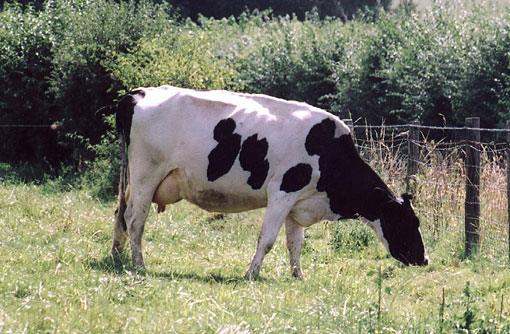Wet weather leads to lungworm time bomb threat

The recent wet weather following the earlier dry conditions experienced by much of the UK may have created a potential lungworm time bomb, warns Merial Animal Health.
The company’s technical vet manager, Fiona MacGillivray, says farmers need to be vigilant in order to catch the disease early. Similarly, farmers who chose not to worm their youngstock during the dry spell may also be putting their cattle at risk from gutworms, which in turn could be having a real effect on growth rates whilst animals are at grass.
“Lungworm is a very real problem and one that can affect not only young animals, but also milking cows, with a dramatic impact on yield.
“The very dry spring experienced by much of the UK created conditions where lungworm larvae have potentially been trapped in the dried faeces, which have been building up on the grazing areas. As a result, it is possible that animals have not been exposed to lungworm larvae, something that is so important to allow animals to build up and maintain their natural immunity to the disease.”
And even adult cattle that have developed immunity through previous grazing seasons can be susceptible to infection and disease if they are not exposed to larvae each grazing season.
The wet weather may have created a potential time bomb effect, with the sudden release of trapped larvae onto pasture following heavy rainfall increasing the chance that animals will become affected, says Ms MacGillivray.
“It is vital farmers are aware of this situation and alert to the symptoms of the disease, ensuring they catch it early and minimise the potential impact on their stock.”
Merial Animal Health has outlined the following steps that farmers should be aware of in order to effectively minimise the risks that lungworm pose to their herds:
Lungworm Checklist:
Symptoms include:
• Breathing rate increases (this may double)
• Coughing, particularly when exercised
• Rapid loss of condition
• Drop in milk yield
• Deaths in severe cases
Treatment:
• Speak to your vet
• Recognise the signs and treat as soon as lungworm has been confirmed in the herd
• Treat all animals in the group, not just those showing signs of disease, as they have all been exposed to infected pastures
• The disease can affect both youngstock and adults
• Worm adult dairy cattle with a nil milk withhold wormer
• Using a product which has persistency means cattle remain protected at grass
• Some very sick animals may be affected with secondary bacterial infections and require additional treatments including antibiotics. It is wise to consult with your vet.
“The summer months are a critical time in tackling lungworm as the first cases begin to appear,” stressed Ms MacGillivray.
“It is critical farmers employ an effective herd management strategy that includes consideration of lungworm treatment and control and which meets the specific requirements of their stock. This would be prepared in consultation with a vet.”
